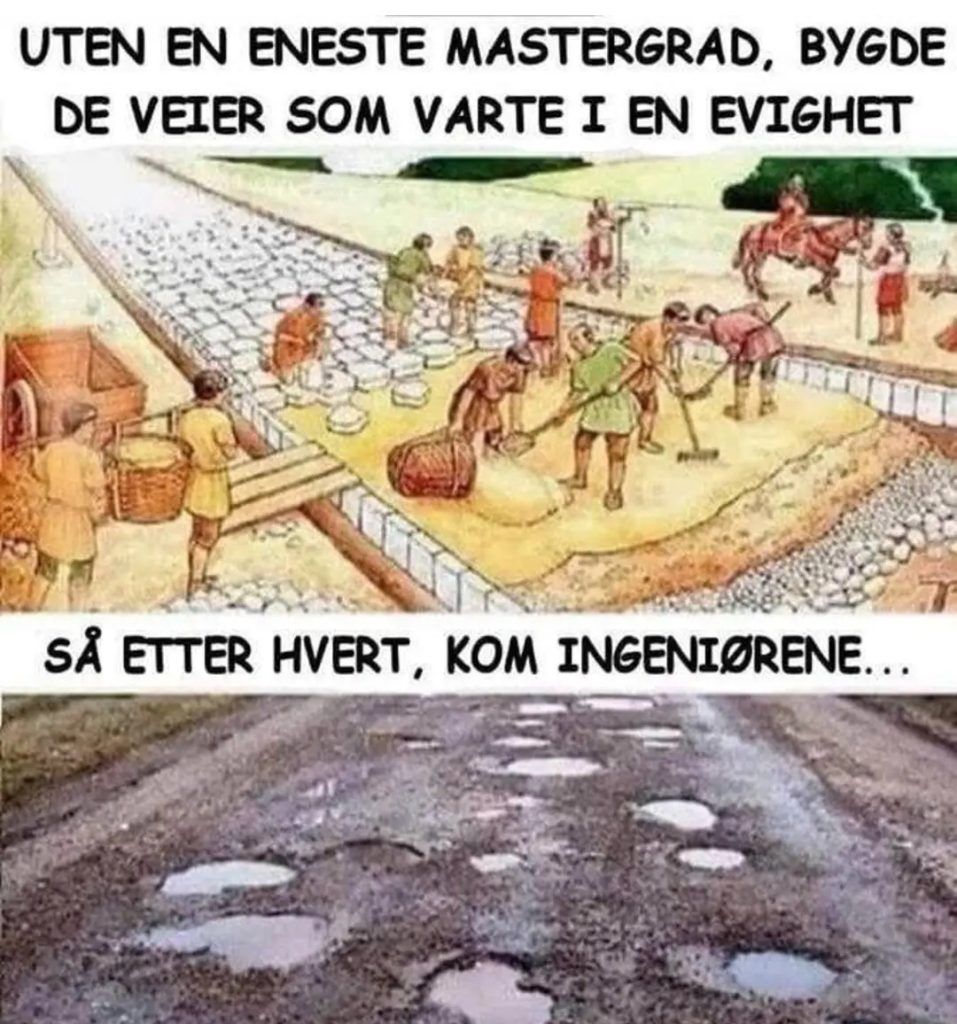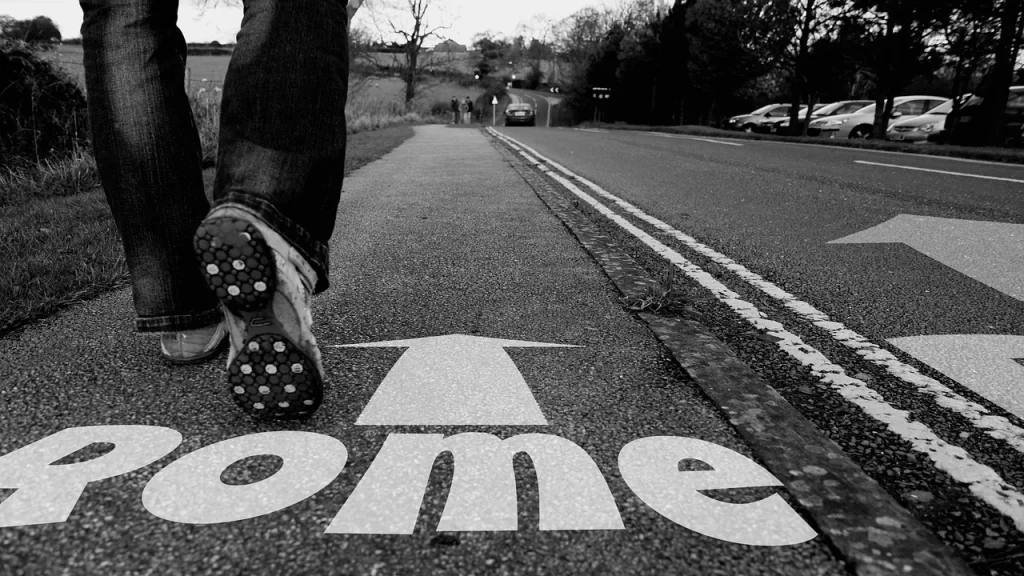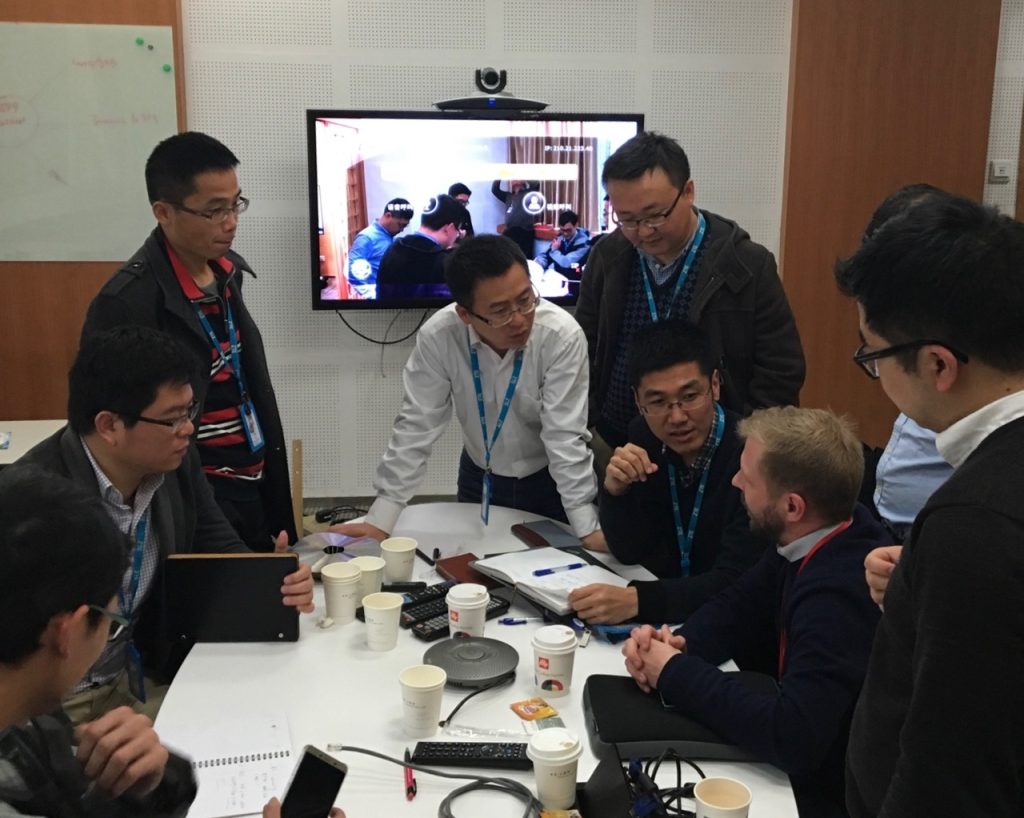Albert Einstein once said, “Education is what remains after one has forgotten what one has learned in school.” In other words, it’s not necessarily the school system that makes us smart, but how we use what we’ve learned. But what if school actually limits how we think? What if what we learn is more of a product of a system designed to shape us into functional citizens, rather than free-thinking innovators?
Introduction
I was sitting and thinking about what to write about – something important, something relevant. Maybe the workforce? Technology? Social development? Then I remembered something my cousin constantly brings up – how talented thinkers are often rejected in the research field because they don’t have the “right” academic titles. It seemed like an interesting angle!
And, actually, it’s a perfect topic for a Sunday article. Because in these longer pieces, I want to share more personal reflections – not just professional analyses, but bigger thoughts on how things are connected. The more I thought about it, the more I realized this isn’t just about research.
The same pattern repeats everywhere: In the workforce, the tech industry, and large infrastructure projects – time and again, solutions are chosen based on who proposes them, rather than whether they actually work.
I’ve personally experienced this in my career. After working 10-12 hours a day for the past 10-15 years to build my skills and secure a stable future, I was certain I would never be out of work. Just a couple of years ago, I was practically flooded with job offers, and I took it for granted that my efforts would guarantee further opportunities.
But life has a way of taking unexpected turns. Unforeseen events, including a sudden death in my immediate family, led to me being outside the workforce – a situation I never imagined.
Despite the fact that I can point to tangible results in both customer service and sales, as well as my involvement in developing a meeting platform for video calls now used by, among others, the Indian government – and having collaborated with one of China’s largest tech companies, I’ve found myself not receiving responses to job applications. Not because I lack experience or documented results, but because I don’t have the “right” formal background.
It’s as if we’ve agreed that knowledge is only valid if it comes with a stamp from an accredited institution. That competence only counts when it can be documented with credits and grades – not with actual results. But what happens to those who learn on their own? Those who research in practice, who develop, improve, and experiment, but lack the “right” papers?
It made me ask a question I believe we should ask more often: What does it really mean to be a researcher?

The Definition of a Researcher
A researcher is someone who systematically observes, experiments, and analyzes to acquire new knowledge. In academia, this often means holding a PhD, being affiliated with an institution, and publishing articles in peer-reviewed journals.
But what about all those who conduct research outside the university walls? Those who work independently, explore new ideas, test hypotheses, and find solutions – don’t they count? If research is about understanding the world, why must it be stamped by a university to be considered “genuine”?
Many of the greatest innovations came from those who didn’t follow the academic path. Tesla, Edison, Jobs – none of them had a PhD. Would Tesla have received research funding today without a PhD? Probably not.
Knowledge vs. Academic Titles
Imagine someone spending 10 years researching a topic. They read hundreds of books, experiment, test theories, and come to new conclusions. Isn’t that research? Or does it only become research when an academic institution says it is?
This is one of the major weaknesses of today’s education system: It values more who says something rather than what is actually being said. Knowledge is not measured in experience or insight, but in the number of credits earned. And if someone doesn’t fit into the academic framework, they risk being dismissed – no matter how groundbreaking their ideas are.
Leonardo da Vinci, Nikola Tesla, Thomas Edison, Steve Jobs – none of them followed the academic norm, but the world would be much poorer without their contributions. So why do we still insist that knowledge must come from the “right” place in order to have value?
“Maybe he’s so smart because he’s not hindered by education?”
Unknown
We like to believe that education opens doors – but what if it sometimes closes them? What if it doesn’t always develop thinkers, but rather limits how we think?
Is Education a System Designed for Obedience, Not Innovation?
When children are young, they ask endless questions. “Why is the sky blue?”, “Why do things fall down?”, and the classic “Why do I have to go to bed?”. They seek knowledge out of pure curiosity. But then school starts, and slowly but surely, curiosity is replaced by memorization. The questions disappear, replaced by tests, grades, and standardized answers.
The school system is designed to produce workers, not thinkers. It teaches us to accept established truths, not to challenge them. We learn to follow instructions, not to create our own. We talk about the importance of daring to try and fail, but in reality, we’re taught that going your own way – and sometimes failing – is shameful, not a necessary step toward finding new solutions.
But how can we create innovation if we’re only taught to think inside the box? How can we discover something new if we’re only allowed to follow existing rules?

What If Education Limits Development?
Imagine two people spending ten years on research.
- One follows the academic path – works through the curriculum, learns what doesn’t work, reproduces established theories, and publishes in respected journals.
- The other takes a different route – experiments freely, tests hypotheses in practice, and might discover solutions no one has seen before.
After ten years, they’ve both gained immense knowledge, but only the first is recognized as a researcher.
Why? Because the system has decided that knowledge is only valid if it comes from the “right” sources.
But who actually decides what a valid source is? Every textbook is written by a human. So why should we blindly trust what others have written, instead of daring to write our own book?
When Established Communities Have Settled on a Theory
A modern example is Randal Carlson, a self-taught researcher in geology and catastrophe theory. He has spent decades analyzing traces of Ice Age impacts and potential comet strikes, but often meets resistance from academia—not because his hypotheses have been thoroughly reviewed and disproven, but simply because he lacks the “right” formal credentials.
This illustrates a larger issue: Once established communities agree on a theory, they often use their research to reinforce it rather than challenge it. But what if that accepted theory can never truly be proven—not because it’s wrong, but because an alternative explanation happens to be the correct one? If alternative hypotheses aren’t even considered, we risk valuable insights being ignored—not due to a lack of substance, but because they come from the “wrong” person.
This doesn’t just apply to research, but to the entire education system—we close the door on those who think differently before they even get the chance to contribute.
NTNU as a Leading Institution
In this context, it’s worth highlighting NTNU, which has built a strong reputation for combining theory and practice in ways that equip students with solid, applicable skills. The university has long been a frontrunner in engineering and technology precisely because it focuses not only on academic knowledge but also on how that knowledge can be applied in the real world.
For example, the new curricula are well suited to practical and exploratory learning. Every subject is required to have both a theoretical and a practical component, fostering deeper understanding and skills that can be used beyond the exam room—in real-life scenarios.
This kind of approach is crucial for developing innovative, action-oriented professionals—people who don’t just memorize the syllabus, but actually solve real-world problems. But here we encounter a paradox:
To get into NTNU, you first need to complete three years of theoretical upper secondary education—what’s known as the general academic track. In practice, this means that many potentially brilliant minds who learn best through experience and hands-on work are excluded before they even reach the door.
General university admission certification is still the most common requirement for entry into Norwegian universities and colleges. Although there are exceptions, like recognition of real-life competence or preparatory courses for engineering, these pathways are often complicated and demand extensive documentation.
The result is a system that continues to favor those who fit the traditional academic mold—at the expense of those who might excel through a different, more practical approach to learning.
So is it really any wonder that valuable ideas are repeatedly rejected—not because they’re flawed, but because they come from the wrong person?

When Valuable Discoveries Are Ignored
Many of the most important scientific breakthroughs came from individuals without formal academic backgrounds, yet they were still dismissed by the research community.
When I asked ChatGPT for examples of how people outside academia have been ignored—despite making significant discoveries—it mentioned Glen Penfield, a geophysicist employed by the Mexican oil company PEMEX. In the late 1970s, he made a discovery that could rewrite history: a massive crater structure on the Yucatán Peninsula, the Chicxulub crater. He believed this crater could be the remnants of an asteroid impact that wiped out the dinosaurs 66 million years ago.
But instead of recognition, he faced resistance. Because he didn’t have a PhD and worked in the oil industry, his finding was largely ignored. When he tried to share his discovery with academics and institutions like NASA, he was brushed off. He later expressed frustration over how the scientific community refused to listen to him—even though he had data that could prove his hypothesis.
It wasn’t until several years later, when academic researchers began investigating the crater more closely, that the discovery was recognized as a key piece in understanding the dinosaurs’ extinction.
This is a clear example of how valuable ideas can be overlooked—not because they are wrong, but because they come from the “wrong” person. Often, we see academia defending this system, perhaps because it affirms the path they themselves have chosen. But what about recognizing that people learn and think differently? That there’s more than one path to insight and innovation?
I, too, have sometimes regretted not pursuing formal education. Not because I feel I lack knowledge, but because it would have been an easier path than working my way up. While those with formal education often have free time after 4 PM and can use work hours to stay updated, I’ve spent hours in front of my PC after work, reading materials, analyzing, testing, and learning what I needed—exactly when I needed it. The difference? Where academia offers a structured path to knowledge, I’ve had to find my own way—and constantly confirm that I’m on the right track, without a formal framework to lean on.
Instead of insisting that everyone must climb the same academic ladder to the top, we should open the door for multiple paths to success—and recognize that those who take a different route are not necessarily on the wrong course.
Here you can read the article about how I learn – and what you can learn from it.

Why Do You Have to Fit In to Be Heard?
Today, innovation and creativity are often praised—but only as long as it comes from those with the “right” title. If you’re a professor at Harvard, you can speak on almost anything and be listened to. But if you’re a self-taught expert, there’s a good chance you’ll be seen as a hobbyist, an “amateur” who is not taken seriously.
Innovation Happens Most Often Outside the System
- The greatest discoveries often come from those who challenged the established norms.
- The most important scientific breakthroughs started as heresy.
- The biggest companies today were founded by people who dropped out of school.
- Big decisions are often made based on academic theory, without listening to those with practical experience.
Yet, we live in a system that refuses to recognize knowledge unless it comes in the “right” package. And not everyone has that one big idea to start a company. Some of us, like me, are not developers—we’re developers of existing solutions. We build on what’s already there, see new connections, and improve things. But in a job market that values either the entrepreneur or the one with the right credentials, it can be difficult to gain a foothold.
A Scaled-Back Project with Major Flaws
Originally, three tunnels were supposed to ensure better accessibility and reduce closures on the mountain pass. But in order to cut costs, Nye Veier removed one of the tunnels and shortened the other two. The consequence? The northern part of the mountain area is still prone to rockfalls, and the road between the tunnels is now more exposed to the weather than before.
Statistics show that the road has been closed several times since its official opening in 2024, and the issue is far from solved. It’s still a significant problem for a road that was supposed to be a “lifeline for the people of Troms and Finnmark.” Local stakeholders have criticized the project for being half-finished—and for creating new problems.
- The road between the tunnels is now more exposed to weather and wind than the old one.
- Rakkenesura, an area still prone to rockfalls, was not secured with a tunnel as planned.
- Local actors warned early on about the solution, but were not heard.
This is far from the only example—and perhaps even one of the mildest. We see this again and again, not just in Norway, but globally: Decisions are made by academics and bureaucrats, while experience-based knowledge is ignored—often with serious consequences.
This happens because we’ve created a system where formal education trumps practical insight, no matter how flawed academic models prove to be in reality.
When decisions are made, we often listen to those with the “right” title rather than those with the “right” experience. This is not just an issue in academia, but also in large infrastructure projects, the tech industry, and political decisions. The system rewards those who can show credentials, but not necessarily those who can show results.
How can we expect to create innovation when those who actually see the problem are rarely allowed to help solve it?
The Solution: A New Way of Thinking About Knowledge
Instead of viewing education as the only path to recognition, we should rethink the following ways to validate knowledge:
- Experience as Proof of Competence
It’s not your degree that determines how much you know—it’s what you’ve actually achieved. If you’ve spent years researching a field and made groundbreaking discoveries, it should be the results that count, not where you studied or what title you hold.
When I collaborated with highly educated technologists, and discussed innovative technology in meetings in China, no one asked about my education or what papers I had. What mattered was the knowledge I brought to the table and the solutions I could provide.

- Practical Results Over Theoretical Qualifications
If you can create value, solve problems, or discover something new, that should weigh more than the number of credits you’ve earned.
In research, we see this clearly when scientists apply for funding to carry out a specific project. The problem? Research is not a straight line. If you start by investigating A but discover that the most groundbreaking insight lies in B or C, you might lose funding because you’re no longer researching what you originally promised. The paradox is that some of the most important scientific breakthroughs have come because researchers dared to deviate from the plan.
A system that rewards rigid plans over real discoveries stifles scientific development—and it’s time we realized that true research is about following where knowledge leads you, not where the budget says you should go.
- Openness to Alternative Learning Paths
Learning happens everywhere, not just in classrooms. Technology has made knowledge more accessible than ever, but the education system—and the requirements for formal education—hasn’t kept up with the times.
In the past, it was necessary to spend years reading books and memorizing theory to perform a job. Today, you can learn new skills in hours, as long as you know where to look and how to assess information. The ability to find, understand, and apply knowledge in practice has become more important than having a piece of paper proving you once read that knowledge in a textbook.
We talk about digitization, but the fact is the system is stuck in a time when education was the only path to expertise. Maybe it’s time to recognize that competence isn’t just about how long you’ve studied, but how quickly and effectively you can acquire and use new knowledge?
- Acceptance of Mistakes as Part of Learning
Mistakes are a necessity for innovation. If we punish mistakes, we also punish new thinking.
In research, this is especially critical. The most exciting discoveries often happen after mistakes, failed hypotheses, and unexpected results. But academia is often more focused on publishable successes than learning from mistakes. In business, we see something similar—many companies talk about innovation, but in reality, they reward safety.
But what if we accepted that mistakes are not just part of learning—they’re the very foundation of new knowledge? The greatest advancements in history often came from accidents, failed experiments, or a researcher who defied expectations. Maybe it’s time to create a system that not only allows but actually encourages following new insights—even when it means deviating from the plan.
Academic Freedom Must Apply to Everyone, Not Just Academics
If we want a society where innovation truly thrives, we must stop making education the only criterion for who can contribute. It’s not titles that drive progress; it’s ideas, knowledge, and experience.
Those who think outside the box must have a seat at the table — whether they have a PhD or not. It’s time we realized that understanding something is more important than having a piece of paper that proves you understand it.
Do we want a society where we only learn what’s already been discovered — or one where we also create new knowledge?
And when we talk about the importance of interdisciplinarity and innovation, yet continue to shut the door on those who don’t follow the established academic path, maybe it’s time to change something. Perhaps the real challenge lies in our inability to see connections across fields and experiences.
What happens when we start connecting knowledge from different areas? How much of what we take for granted in one context can actually be transferred to another? That’s exactly what I’ll explore further in the next article, which is about seeing connections.



